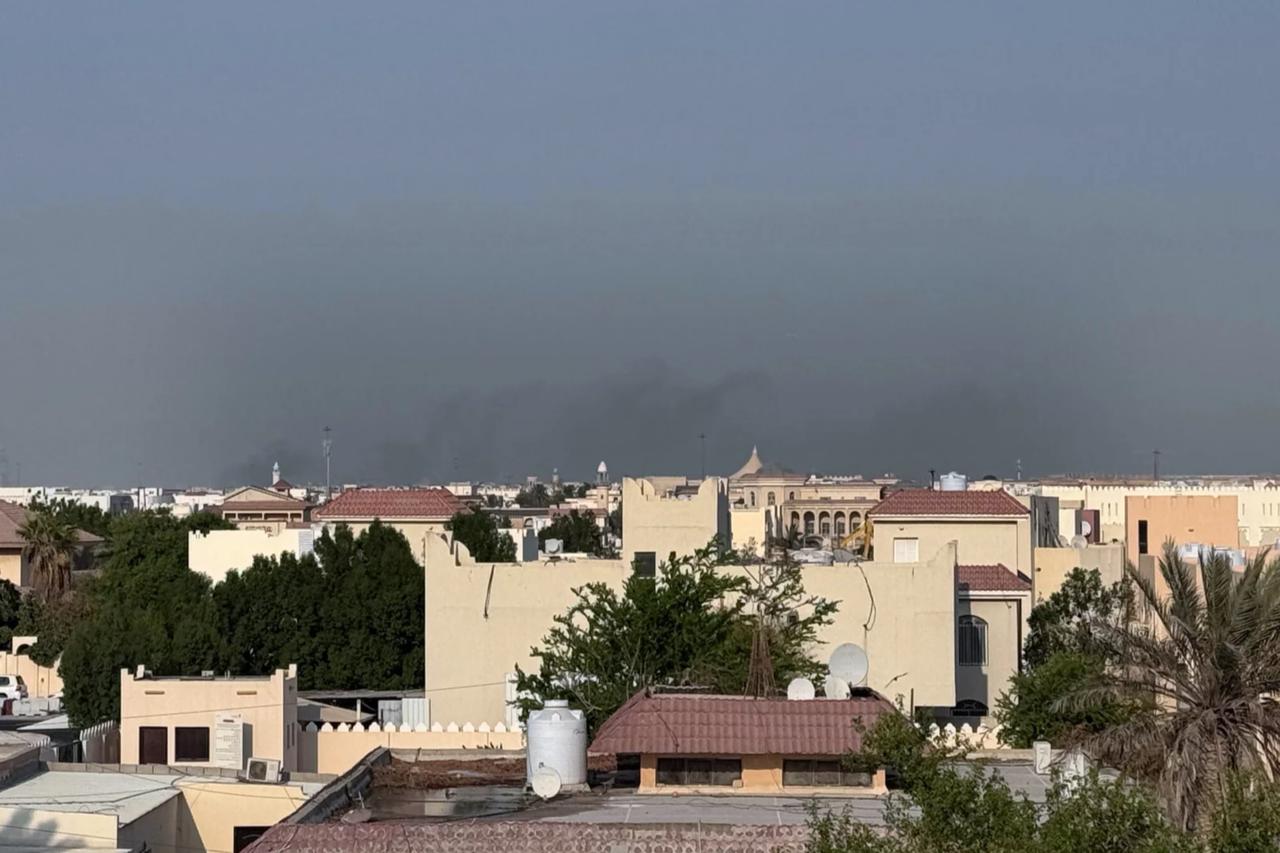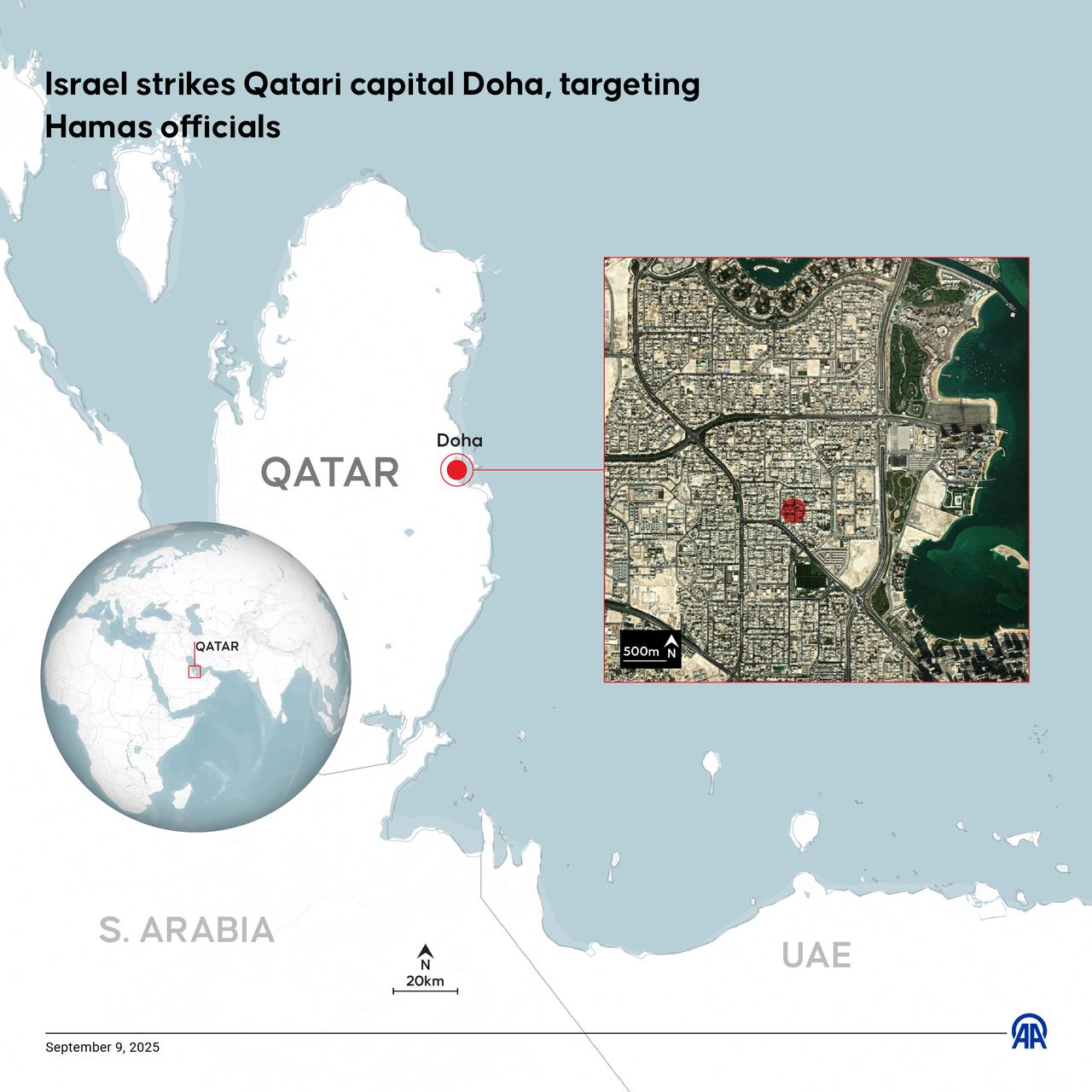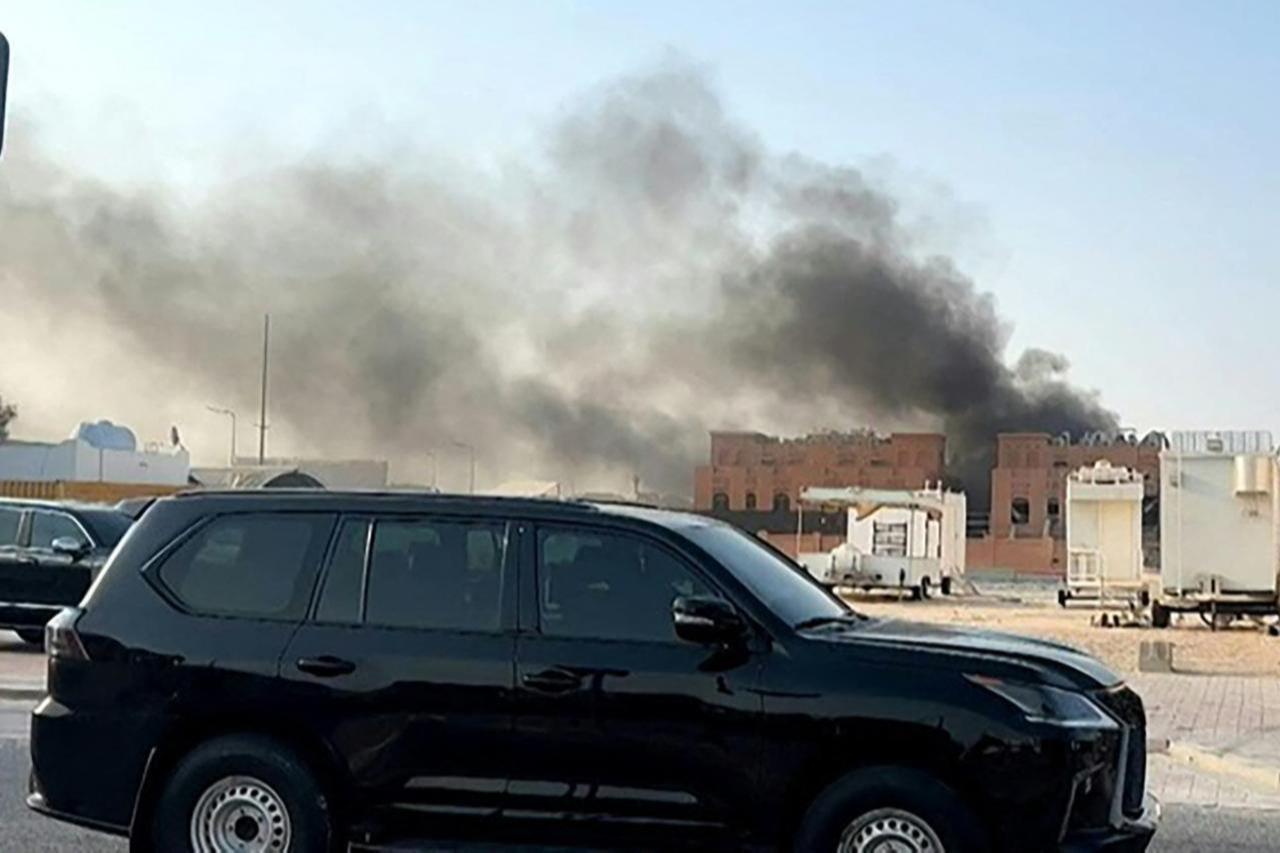
Israel’s attack on Qatar marks a dramatic shift in the region’s conflict map. The strike targeted a state that has long positioned itself as a mediator in ceasefire negotiations between Israel and Hamas and is also home to the United States’ largest military base in the Middle East, Al Udeid Air Base. Qatar’s foreign ministry denounced the attack as “criminal” and condemned it “in the strongest terms.”
The development comes amid Israel’s ongoing bombardments across multiple fronts, including Gaza, Lebanon, Yemen, Syria, and near-daily operations in the occupied West Bank. Analysts note that the Qatar strike symbolizes a new phase in Israel’s readiness to expand its military campaign well beyond traditional zones of confrontation.
Sources tell that the Hamas negotiating delegation survived an Israeli assassination attempt in Doha.
Responses are coming from Giorgio Cafiero, Gokhan Ereli, Feyza Gumusluoglu, and Aziz Alghashian.
The Israeli strike has also raised urgent questions about the U.S. security umbrella that Gulf states have depended on for decades. Giorgio Cafiero, CEO of Gulf State Analytics and adjunct professor at Georgetown University, explained for Türkiye Today that the attack highlights the vulnerability of all six GCC monarchies. “The six Gulf Arab monarchies exist under the U.S. security umbrella. This security umbrella has enabled the GCC states to enjoy stability and security that is not existent in other parts of the Arab world. At this juncture, GCC policymakers will have very good reason to call into question the wisdom of counting on Washington as a security guarantor if the U.S. will not use its position to protect the GCC states from Israeli aggression,” Cafiero said.
He stressed that the attack on Doha is being viewed across the Gulf as an attack on all member states. “The other GCC states understand that what happened today in Doha could happen in their own countries as well. Within this context, the Israeli attack on Qatar is widely understood throughout the Gulf as an attack on all of the GCC states,” he added.
Cafiero believes that Qatar will respond on multiple fronts, including intensifying its lobbying efforts in Washington. “When it comes to U.S. foreign policy in the Middle East, we can expect the Qataris to intensify their efforts to lobby the Trump administration to rein in Israel,” he said, noting that the episode will have “major ramifications for Qatar and its five fellow GCC members.
According to journalist and author Feyza Gumusluoglu, the attack signals “a new breaking point for the region.” The senior reporter, speaking to Türkiye Today, argues that the strike shows how peace efforts and normalization with Israel have failed to provide Gulf states with security. “Security guarantees, U.S. bases, warm relations — none of it offers protection. The so-called normalization with Israel has proven to be a hollow illusion,” Gumusluoglu said.
She added that the Gulf’s strategic calculus has fundamentally changed: the threat is no longer limited to Iran but now includes Israel itself as a state capable of sudden and direct strikes. This shift, she noted, will force Gulf leaders to reconsider how they define and ensure national security in an increasingly volatile environment.

Military retaliation from Qatar remains improbable, experts suggest. Speaking to Türkiye Today, Gokhan Ereli, Gulf studies coordinator at ORSAM, explained that Doha traditionally favors diplomacy and international law over military action. “It is highly unlikely that Qatar would respond militarily in such a situation,” Ereli said.
Instead, he argued, Qatar could leverage international platforms to isolate Israel politically. By framing the strike as “a blatant violation of sovereignty,” Qatar is expected to mobilize forums such as the United Nations, the Arab League, and the Organization of Islamic Cooperation. This approach, Ereli noted, would allow Doha to highlight Israeli aggression on the world stage while reinforcing its security position within a legal and diplomatic framework.
Beyond the military dimension, Gumusluoglu added that the most powerful tool at the Gulf states’ disposal could be economic. “Even though unlikely, if Qatar and other GCC countries were to act collectively, cutting all commercial ties with Israel and companies doing business with Israel — similar to what the U.S. has done against Russia — the impact would be significant. Whether they would actually take such a step is another matter, but it remains the most effective weapon they could use,” she said.

The attack also underscores what some analysts describe as the Gulf Cooperation Council’s (GCC) growing sense of “strategic loneliness.” Aziz Alghashian, a Saudi researcher specializing in Gulf foreign policy, argued that Israel’s move not only complicates GCC security but directly undermines member states’ sovereignty.
“The GCC is in full swing of its version of ‘strategic loneliness,’” Alghashian said. He pointed out that China’s engagement remains narrowly tied to economic interests, while the United States — historically viewed as the region’s main security guarantor — is increasingly seen as an enabler of insecurity. For Gulf states, he added, the Qatar strike exposes a new layer of vulnerability in an already uncertain security environment.